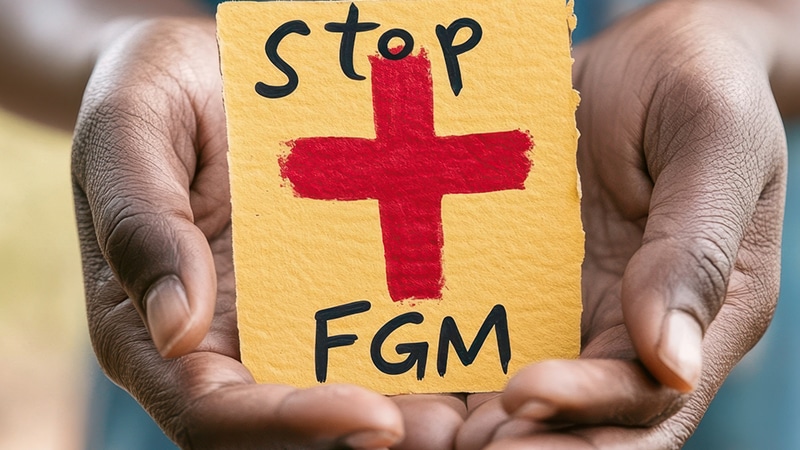U.S. Bishops Issue a “Special Message” on Immigration from Plenary Assembly in Baltimore – usccb

Report on the U.S. Conference of Catholic Bishops’ Special Message on Immigration and its Alignment with Sustainable Development Goals
Introduction
The United States Conference of Catholic Bishops (USCCB), during its Fall Plenary Assembly in Baltimore, issued a Special Message addressing the situation of immigrants in the United States. This formal declaration, the first of its kind in twelve years, was approved by an overwhelming majority vote of 216 in favor, 5 against, and 3 abstentions. The message underscores the Church’s commitment to principles that directly align with several United Nations Sustainable Development Goals (SDGs), particularly those concerning human dignity, equality, and justice.
Key Concerns and Alignment with Sustainable Development Goals (SDGs)
The bishops articulated several grave concerns regarding the treatment of immigrants, which reflect a failure to meet key SDG targets. These concerns are outlined below:
- Climate of Fear and Anxiety: The pervasive fear surrounding immigration enforcement and profiling undermines SDG 3 (Good Health and Well-being) by creating significant mental and emotional distress within communities. It also compromises SDG 11 (Sustainable Cities and Communities) by preventing the creation of safe and inclusive environments for all residents.
- Dehumanizing Rhetoric and Vilification: The current state of public debate is seen as a direct challenge to SDG 10 (Reduced Inequalities), as it promotes discrimination and marginalizes a vulnerable population. This rhetoric also works against SDG 16 (Peace, Justice and Strong Institutions) by fostering division rather than promoting peaceful and inclusive societies.
- Detention Conditions and Family Separation: Concerns about conditions in detention centers and the separation of families highlight violations of fundamental human rights. These issues directly impact SDG 3 (Good Health and Well-being) and challenge the objective of SDG 16 to ensure access to justice for all and build effective, accountable institutions.
- Barriers to Essential Services: The message notes that parents fear detention when taking children to school, and it expresses concern over threats to the sanctity of hospitals and schools. This directly threatens progress on SDG 4 (Quality Education) and SDG 3 (Good Health and Well-being) by creating barriers to accessing fundamental services.
Advocacy for Systemic Reform and Institutional Justice
The USCCB’s message advocates for comprehensive reform of U.S. immigration laws, framing it as a necessary step toward achieving justice and upholding human dignity. This advocacy is strongly linked to the following SDGs:
- SDG 16: Peace, Justice and Strong Institutions: The call for meaningful immigration reform is a call to build more effective, accountable, and inclusive institutions. The bishops assert that human dignity and national security are not mutually exclusive, advocating for a just and orderly system that protects the common good.
- SDG 10: Reduced Inequalities: By opposing the arbitrary loss of legal status and indiscriminate mass deportations, the bishops advocate for policies that reduce inequality and protect vulnerable groups from discriminatory practices.
- SDG 8: Decent Work and Economic Growth: The message recognizes the enormous contributions of immigrants to the nation’s well-being. Furthermore, it states that establishing safe and legal pathways for migration serves as an antidote to human trafficking and exploitation, which is a key target within SDG 8.
Conclusion: A Call for Solidarity and Hope
The Special Message concludes with a call for solidarity, urging continued support for immigrants and opposition to dehumanizing rhetoric and violence. The bishops position their advocacy as a moral imperative rooted in hope and a commitment to human dignity. This stance reinforces the overarching principles of the 2030 Agenda for Sustainable Development, particularly the commitment to “leave no one behind” and to foster peaceful, just, and inclusive societies for all people, irrespective of their migratory status.
Sustainable Development Goals (SDGs) Addressed in the Article
SDG 10: Reduced Inequalities
The article directly addresses the inequalities faced by immigrants. It highlights a “climate of fear and anxiety,” “profiling,” and the “vilification of immigrants,” which are manifestations of social and legal inequality. The call to defend “God-given human dignity” and advocate for reforms that ensure fair treatment for all, regardless of their origin, is central to reducing inequalities.
SDG 16: Peace, Justice and Strong Institutions
The USCCB’s message is a call for more just and humane institutions. It expresses concern over “immigration enforcement,” “conditions in detention centers,” and the fact that “some immigrants in the United States have arbitrarily lost their legal status.” The advocacy for a “meaningful reform of our nation’s immigration laws and procedures” and a “just and orderly immigration system” directly relates to building effective, accountable, and inclusive institutions at all levels.
SDG 8: Decent Work and Economic Growth
While not the main focus, the article touches upon the economic vulnerability of immigrants. It states that without “safe and legal pathways,” immigrants “face the risk of trafficking and other forms of exploitation.” This connects the issue of migration policy to the protection of individuals from forced labor and exploitation, which is a key aspect of ensuring decent work.
Specific SDG Targets Identified
SDG 10: Reduced Inequalities
- Target 10.3: Ensure equal opportunity and reduce inequalities of outcome, including by eliminating discriminatory laws, policies and practices. The article supports this target by lamenting that “some immigrants in the United States have arbitrarily lost their legal status” and advocating for a “meaningful reform of our nation’s immigration laws and procedures” to end such discriminatory outcomes.
- Target 10.7: Facilitate orderly, safe, regular and responsible migration and mobility of people, including through the implementation of planned and well-managed migration policies. The bishops’ call for a “just and orderly immigration system” and the creation of “safe and legal pathways” as an “antidote” to risks like trafficking directly aligns with this target.
SDG 16: Peace, Justice and Strong Institutions
- Target 16.1: Significantly reduce all forms of violence and related death rates everywhere. The article addresses this by praying for an “end to dehumanizing rhetoric and violence, whether directed at immigrants or at law enforcement.”
- Target 16.3: Promote the rule of law at the national and international levels and ensure equal access to justice for all. The concern for immigrants who have “arbitrarily lost their legal status” and the “lack of access to pastoral care” in detention centers points to a breakdown in the rule of law and unequal access to justice for this population.
- Target 16.10: Ensure public access to information and protect fundamental freedoms, in accordance with national legislation and international agreements. The article mentions being “troubled by threats against the sanctity of houses of worship,” which relates to the protection of fundamental freedoms like the freedom of religion.
SDG 8: Decent Work and Economic Growth
- Target 8.7: Take immediate and effective measures to eradicate forced labour, end modern slavery and human trafficking. The article explicitly links the lack of a just immigration system to increased vulnerability, stating that without proper processes, “immigrants face the risk of trafficking and other forms of exploitation.”
Indicators for Measuring Progress
Implied Indicators from the Article
- Prevalence of discriminatory practices: The article implies that the number of immigrants who have “arbitrarily lost their legal status” can serve as an indicator of discriminatory practices within the legal and immigration system.
- Existence of safe migration policies: The presence or absence of “safe and legal pathways” for migration is a key indicator. The article suggests the current system is lacking in this area, leading to increased risks.
- Incidence of violence and dehumanizing rhetoric: The level of “dehumanizing rhetoric and violence” directed at immigrants is a qualitative indicator of social cohesion and peace. A reduction in such incidents would signify progress.
- Conditions of detention: The “conditions in detention centers” and the level of “access to pastoral care” for detainees are implied indicators of how justly and humanely institutions are treating vulnerable populations.
- Rates of human trafficking and exploitation: The article suggests that the incidence of “trafficking and other forms of exploitation” among immigrant populations is a direct measure of the failure to provide safe and orderly migration systems.
Summary of Findings: SDGs, Targets, and Indicators
| SDGs | Targets | Indicators (Implied from the Article) |
|---|---|---|
| SDG 10: Reduced Inequalities | 10.3: Ensure equal opportunity and reduce inequalities of outcome.
10.7: Facilitate orderly, safe, regular and responsible migration. |
– Instances of immigrants “arbitrarily” losing legal status. – Prevalence of “vilification of immigrants” and “profiling.” – Existence and accessibility of “safe and legal pathways” for migration. |
| SDG 16: Peace, Justice and Strong Institutions | 16.1: Significantly reduce all forms of violence.
16.3: Promote the rule of law and ensure equal access to justice. 16.10: Protect fundamental freedoms. |
– Level of “dehumanizing rhetoric and violence” against immigrants and law enforcement. – “Conditions in detention centers” and “lack of access to pastoral care.” – Number of “threats against the sanctity of houses of worship.” |
| SDG 8: Decent Work and Economic Growth | 8.7: Eradicate forced labour, end modern slavery and human trafficking. | – Incidence of “trafficking and other forms of exploitation” among immigrant populations. |
Source: usccb.org
What is Your Reaction?
 Like
0
Like
0
 Dislike
0
Dislike
0
 Love
0
Love
0
 Funny
0
Funny
0
 Angry
0
Angry
0
 Sad
0
Sad
0
 Wow
0
Wow
0
















































































